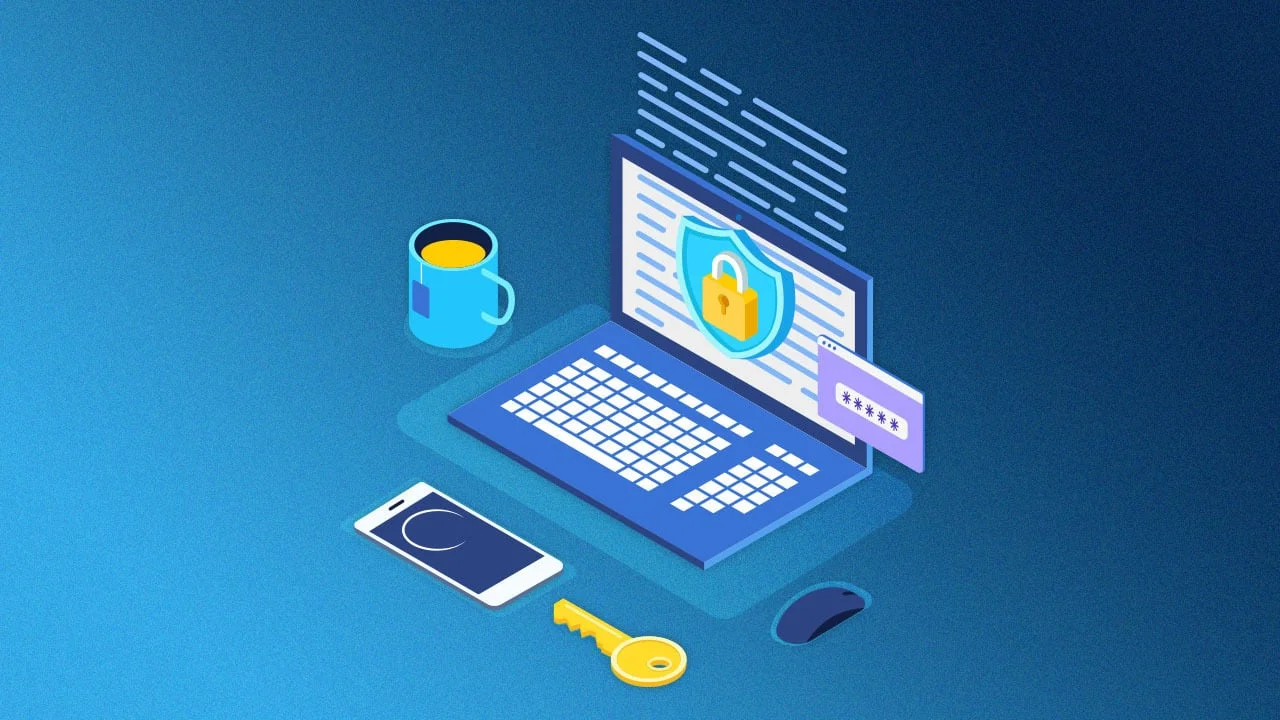Why Website Security Matters More Than Ever in 2023: Tips and Best Practices
Website security is more important than ever in the modern digital environment, where cyber threats are growing more complex. Website owners and organizations need to prioritize security measures to protect their sensitive data, reputation, and customers because fraudsters are always coming up with new ways to exploit weaknesses. In this post, we’ll explore why website security is crucial now more than ever in 2023 and offer helpful advice and best practices for defending your website from attackers.
The hazards presented by cyber threats are greater than ever as the digital landscape develops. You can make website security a high priority for your company by being aware of the changing threat landscape, safeguarding important information, upholding user confidence, and taking advantage of SEO advantages.
You may strengthen your website against potential threats by putting best practices into practice, such as regular updates, strong passwords, firewalls, backups, security audits, user education, SSL certificates, and proactive monitoring. Keep in mind that maintaining website security is a continual process that calls for ongoing work and adaptability.
By making a significant investment in strong security measures, you not only protect your website and precious data, but you also safeguard the faith and trust of your users. Setting website security as a top priority can help your online presence succeed overall and last for a long time in addition to reducing dangers.
Prioritise website security now to provide yourself, your company, and your users with a safe and secure online experience in 2023 and beyond.

The Evolving Threat Landscape
Cybercriminals use cutting-edge methods to get past security defenses, and the threat landscape in the online world is continuously changing. The threats are numerous and include malware infections, phishing scams, and hacking attempts. A security breach can have disastrous effects, including loss of money, harm to a company’s reputation, and even legal penalties. As a result, it is crucial to deploy strong security measures while also remaining proactive.
Protecting Sensitive Data
Protecting sensitive data is mostly dependent on website security. Making sure the security and integrity of this information is essential whether you are collecting client information, processing payments, or storing private business data. Identity theft, data breaches, and unauthorized access could result from a security breach. You can dramatically lower the risks related to data compromise by employing encryption techniques, safe data storage, and regular vulnerability assessments.
Maintaining User Trust
Maintaining people’s trust is crucial at a time when they are becoming more and more concerned about their online privacy and security. A secure website not only keeps user information safe but also gives your visitors peace of mind. Visitors are more inclined to engage, provide information, and complete transactions on your website when they feel safe and secure. On the other hand, a compromised website may cause visitors to stop trusting it, which would reduce sales and customer loyalty.
SEO Benefits
Your efforts to optimize your website for search engines (SEO) are directly impacted by website security. To give visitors a safer surfing experience, search engines give priority to secure websites in their rankings. You may let search engines know that your website is reputable and trustworthy by deploying SSL certificates, utilizing HTTPS protocols, and following other security best practices. Your search rankings may be positively impacted by this, increasing your visibility, organic traffic, and conversion rates.
Best Practices for Website Security
Now that we understand the importance of website security, let’s explore some best practices to fortify your website against potential threats:
Regular Updates and Patches
Keep an eye out for updates to the latest security fixes for the software, plugins, and themes on your website. Crackers may be able to take advantage of exposure to outdated software. You reduce your chance of being a victim of well-known security flaws by keeping things current.
Strong and Unique Passwords
Encourage the usage of distinct, complicated passwords and impose strict password regulations on all user accounts. Insecure passwords invite criminals to access information without authorization. Multi-factor authentication might be used as an additional layer of security.
Firewalls and Intrusion Detection Systems
Firewalls and intrusion detection systems can be used to monitor any unusual activity and help prevent unauthorized access. As a first line of defense, these security measures stop possible dangers before they can access your website.
Regular Backups
The data on your website needs to be regularly backed up in case of a security breach or other catastrophic incident. It makes sure that you may quickly and with little data loss restore your website to its prior condition. To protect them from being compromised along with your website, store backups in safe, off-site locations.
Website Security Audits
Conduct routine security audits of websites to find vulnerabilities and quickly fix them. This may entail looking for viruses, testing your code for vulnerabilities, and examining server setups. You can lessen the likelihood of a successful attack by proactively detecting and fixing security issues.
Educate and Train Users
Human error frequently contributes to security breaches. It’s crucial to inform and train website visitors—including staff members—on security best practices. Teach children how to spot phishing efforts, stay away from dubious links, and maintain secure passwords. You provide another line of defense against potential dangers by promoting a security-conscious culture.
Secure Socket Layer (SSL) Certificates
A secure connection between your website and its users must be established using SSL certificates and HTTPS protocols. SSL protects critical information during transmission between the user’s browser and your website, making it more challenging for hackers to intercept and decode it.
Monitor and Respond to Security Threats
It’s crucial to always check the security of your website to quickly identify and address any problems. Invest in security monitoring software that can notify you of any questionable activity, such as attempted unauthorized access or atypical traffic patterns. A quick and efficient response in the case of a security incident is ensured by having a response strategy in place.
Securing E-commerce Transactions and Customer Data E-commerce
Websites are frequent targets for fraudsters because they handle sensitive client data and enable financial transactions. The best practices for securing e-commerce transactions and safeguarding client data will be covered in this chapter. We will look at encrypted financial data, safe payment methods, and adherence to data protection laws. Businesses may establish a secure online purchasing environment and inspire client confidence by putting in place rigorous security measures.
Implementing Regular Security Audits and Updates
Website security is a continuous process that needs to be audited and updated frequently. This chapter will discuss the significance of performing security audits to find holes and flaws in websites. The need of keeping up with software and plugin upgrades to make sure the most recent security fixes are in place will also be covered.
An extensive analysis of the code, configurations, and infrastructure of your website is part of a security audit. It aids in locating weak places in the security defenses and possible points of entry for attackers. Regular audits can help you keep ahead of cyber threats and proactively fix any vulnerabilities that might be used against you.
You should assess several elements of your website during a security audit, such as server configurations, file permissions, user access restrictions, database security, and web application security. You can spot potential dangers by looking into each of these categories and then taking the necessary precautions to reduce them.
Additionally, it’s critical to maintain all plugins and applications up to date. Updates are frequently made available by developers to fix security flaws and enhance performance. If these updates are not installed as soon as possible, your website may become vulnerable to known attacks. Because they are fully aware of the vulnerabilities they target, hackers frequently use outdated plugins and software.
Consider using an automated update mechanism to speed up the updating procedure. This guarantees that urgent security patches are installed without the need for manual involvement. Before delivering improvements to your live website, it is crucial to test them in a staging environment. This enables you to spot any potential compatibility problems.
It is crucial to have a reliable backup system in place in addition to routine audits and updates. Regular website backups make it possible to swiftly restore your website to a previous state in the event of a security breach or data loss. To prevent them from being compromised along with your website, keep backups safely stored, preferably offshore.
You may dramatically improve the security posture of your website by undertaking frequent security audits, remaining current with software and plugin upgrades, and maintaining trustworthy backups. These proactive steps show that you are dedicated to securing user information and guarding against new risks.
The significance of creating a strong incident response strategy to handle security breaches effectively and lessen their impact on your website and users will be covered in more detail in the following chapter.
Conclusion
Website security is crucial in 2023’s digital environment. The need of giving website security a priority is highlighted by the changing threat landscape, the necessity to safeguard sensitive data, upholding user confidence, and the SEO advantages. You may greatly improve the security posture of your website by putting best practices like regular updates, strong passwords, firewalls, backups, security audits, user education, SSL certificates, and proactive monitoring in place. Keep in mind that maintaining website security involves regular attention and modification to keep ahead of online dangers. In an increasingly linked digital world, you may safeguard your website, your data, and the consumers’ trust by making significant security investments.


